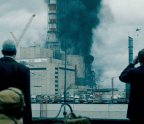Aesthetics of Power FORM AND IDEOLOGY IN TRIUMPH OF THE WILL

There is likely no celebrated masterpiece of cinema so troubling and controversial as Leni Riefenstahl’s Triumph of the Will (1935). Now over eighty years old, the film remains on school lists as a touchstone for questions relating to early-twentieth-century history, documentary form, cinematography and the aesthetics of propaganda. It is a widely acknowledged masterpiece of cinema, but also a terrifying expression of Nazism. As a document of the 1934 Nazi Party Congress in Nuremberg, Triumph of the Will utilises an astonishing array of techniques and stylistic devices to present a vast cinematic window into the deranged and feverish cultural atmosphere of early Nazi Germany. To what extent the film’s artistic values can be distinguished from its depraved ideological function is the central concern of this article.
Riefenstahl was still in her early thirties when Adolf Hitler commissioned her to direct propaganda films for the Nazi Party (the first being the lesser-known (1933), a document of the first Nuremberg Rally after Hitler took office). Already a successful film star and a one-time film director, Riefenstahl was nevertheless entirely inexperienced as a documentary filmmaker. It would seem, though, that Hitler considered Riefenstahl’s inexperience a merit rather than a handicap. Put simply, Hitler did not want a filmmaker entrenched in established notions of documentary cinema that might dilute the power of the Nazi vision; rather, he was far more concerned with finding a film artist who targeted the emotions. Riefenstahl’s penchant for bold visual expressiveness and highly emotive atmospherics (not to mention her physical embodiment of the Aryan ideal woman ) were, therefore, precisely the kinds of elements Hitler wanted in the new cinematic language of Nazi Germany, much as the commitment to objectivity and factual accuracy normally associated with documentary form were far less important in this context than the exploitation of cinema at the service of an aesthetic of power, propaganda and manipulation. We will see in some analytical detail to what extent Riefenstahl succeeded in realising Hitler’s
You’re reading a preview, subscribe to read more.
Start your free 30 days





